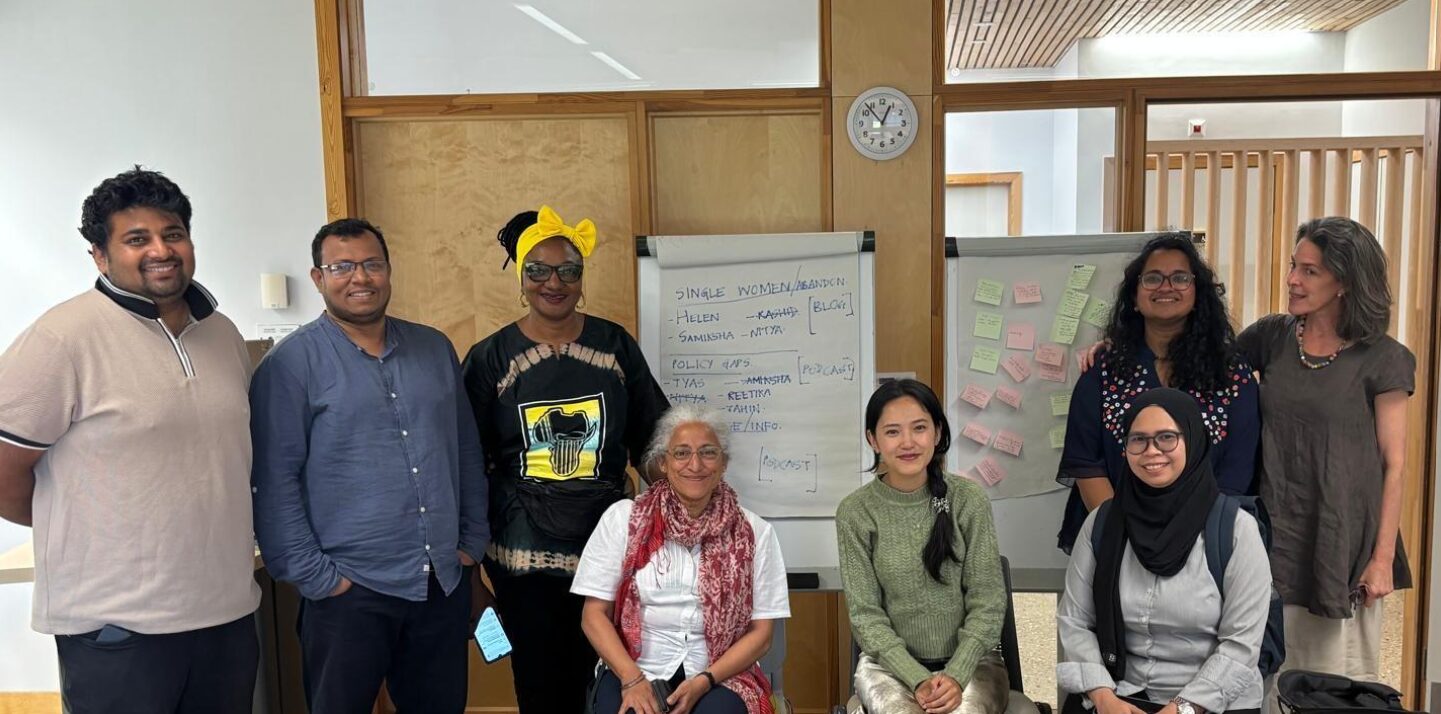Beyond the Checklist: Rethinking Gender, Justice, and Research in a Changing World
/
Authored by Reetika Revathy Subramanian and Nitya Rao, SUCCESS
Separated by oceans, languages, and time zones, but bound by shared histories of patriarchy, colonialism, and climate disruption, researchers from across five CLARE projects came together from June 18-20, 2025 at the University of East Anglia. What brought us together was not just a common research interest, but a shared discomfort with how gender so often gets reduced to a box to tick in development work. We did not come to showcase polished findings. We came to challenge each other and ourselves on how knowledge is produced, whose voices it amplifies, and how research can be more than another report gathering dust on a shelf.
We were part of the ‘Gender and Development: Debates for a Changing World’ conference, co-led by Professor Nitya Rao from the School of Global Development, who is also a member of the SUCCESS research project supported by CLARE. The event opened with a day-long workshop for CLARE researchers, and over the next two days, brought together nearly a hundred gender scholars from across disciplines, countries, and generations. In and through panels, discussions, and creative sessions, the conference became a space not just for academic exchange, but for real reflection on where gender studies stands and where it needs to go. There is a strong feeling that gender studies is shifting. Beyond questions of identity, younger feminists are asking harder questions about war, climate change, AI, digital surveillance, authoritarianism, and the wider systems shaping our lives. At the same time, the field itself feels like it is under threat. Cuts to funding, programmes being shut down, political pressure, censorship.
For Grace, Helen, Samiksha, Jahin, Tyas, Rashed, Nitya, and me, it did not feel like a standard conference with carefully crafted presentations. It felt more like a series of honest, sometimes challenging conversations among people working on the frontlines of climate vulnerability, displacement, governance, labour, and land rights. Some of us worked on coastal adaptation in Bangladesh, others on land conflicts in Nigeria, fisheries in Indonesia, or industrial labour in Bhutan. Our contexts differed, but certain questions kept surfacing. How do power systems, whether gendered, racial, or economic, shape people’s ability to survive, resist, and adapt? And what does it mean for us, as researchers, to be caught up in these dynamics? Jahin shared insights from the SURF-IT project, where communities and scientists in Bangladesh are co-producing climate information. Samiksha discussed her experiences using photovoice with different stakeholders in Bhutan to facilitate non-threatening communication in shaping interventions around migration as adaptation (SUCCESS).
One theme that kept surfacing for us was accountability. Not the kind demanded by funders or academic institutions, but the kind we owe to the people whose lives our research engages with. Again and again, we asked ourselves who we are really doing this for. Is publishing enough? Or should we be creating spaces for dialogue that go beyond academic circles? One of our favourite moments was when we spent a day in UEA’s media lab, not just experimenting with formats, but with our own voices. We recorded podcasts that did not try to package stories neatly but opened up the messy, complicated nature of knowledge and whose voices are heard.
Another thread running through everything was a quiet but firm rejection of the way resilience is often romanticised. Over and over, we shared stories that pushed back against the idea of resilience as some heroic quality that women on the margins naturally possess. The realities were tougher, rawer, and far more complex. In Nigeria, Helen shared that girls from herding communities were being married off young as families tried to shield them from growing violence. In Indonesia, Tyas spoke about how women in small-scale fisheries were excluded from adaptation plans even as their livelihoods hung by a thread. In Bangladesh, Rashed described how displaced women were walking longer distances for water as climate shocks piled up. And in Nepal, I shared insights from our ongoing research on how women were slowly pushing back against patriarchal governance, stepping into leadership roles in places where they had long been sidelined.
These women were not simply surviving. They were negotiating, resisting, adapting, often at great personal cost. Their resilience was real, but it was not something to romanticise or turn into a feel-good slogan. Sitting with these stories, we found ourselves wrestling with our own roles in how these narratives are told. How do we make sure we are amplifying voices, not speaking over them? How do we stay true to people’s lived experiences without flattening them into soundbites or policy briefs?
What struck us most was that none of us approached these questions in the same way. We did not share a single method or outlook. But we shared something more important, a willingness to sit with difficult questions and resist the urge for easy answers. Climate change, gender inequality, and systemic injustice do not come with tidy conclusions. Instead of pretending they do, we leaned into the discomfort. We asked ourselves what it really means to do this kind of work with integrity, especially when we are often working within the very systems we seek to critique.
When we left Norwich, it wasn’t with grand statements or final answers. We left with a clearer sense of purpose and a shared understanding that solidarity isn’t about always agreeing, but about staying in conversation, even when it is hard. Though we are now back in different places, we remain connected by the memories we made — walking along the UEA Broad, sharing laughter in the media lab, and talking through ideas during the conference.
Categories
Countries
CLARE Pillars
CLARE Themes
CLARE Topics
Published
CLARE Projects
CLARE Partners


